I Ran 200 Marathons and These 12 Running Rules Changed My Life After 40
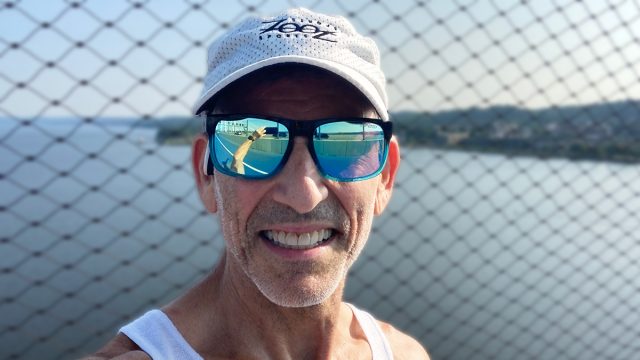
Are you thinking about lacing up your running shoes for the first time—or getting back to running after years away from the sport? Whether you're a complete beginner or returning after a break, starting to run after 40 requires a different approach than in your younger years. But with the right guidance, you can discover the joy of running at any age.
Few people understand this better than Jeff Horowitz, a certified running, cycling, and triathlon coach who has completed over 200 marathons and ultramarathons across six continents. After practicing law for 20 years, Horowitz followed his passion and became a full-time running coach. He now teaches at George Washington University and works with runners aged 14 to 80. He's also authored several books, including "Think Like a Runner: Understanding Why We Run and How to Do It Better." Read on to discover his 12 proven rules that will help you build a strong running foundation while avoiding common injuries that plague most runners over 40.
From Law to Running: Following Your Passion

"I had been practicing law for 20 years, but my passion for it had faded. During that time, my interest in training, racing, and coaching had grown to the point where I wanted to switch my focus and really follow my passion," says Horowitz. After coaching part-time for five years, he took the plunge into full-time coaching. "I've been doing it now full-time for 14 years," he adds.
The Journey to 200 Marathons
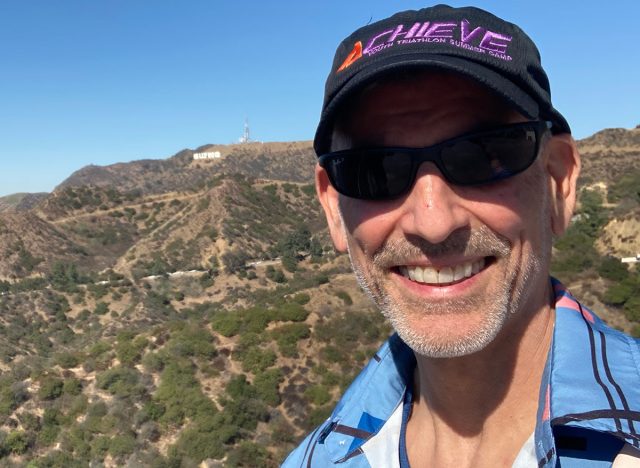
"I was in my mid-20s when I discovered distance running," says Horowitz. His journey to 200 marathons wasn't planned—it evolved naturally. "Running 200 marathons was never actually my goal. I just wanted to do races that sounded fun for me, and at some point, I realized they were adding up." After completing his goal of running a marathon in every state, he kept going. "My friends and clients were very supportive of my running as I neared that milestone, and a number of them came with me to Kyoto, Japan, where I finally logged number 200."
Your Body Has Changed—Your Training Should Too
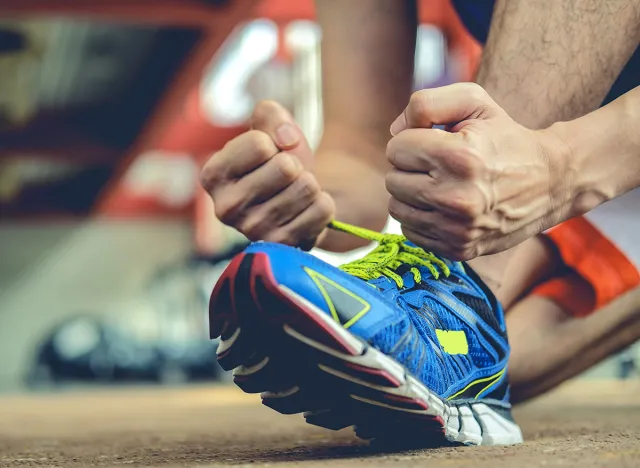
What is the biggest mistake runners over 40 make? "Assuming that whatever worked for you in your 20s will continue to work for you," Horowitz warns. "The truth is that your body has undergone changes, and the puzzle has completely evolved and requires new solutions."
Three Critical Focus Areas

Horowitz identifies three key areas older runners must address: "Not scheduling more recovery time after hard efforts is the biggest mistake. Not focusing enough on maintaining and improving core strength is probably the second biggest mistake. Not working on balance would be the third biggest mistake. As we age, our margin for error gets smaller and smaller, and we need to really pay attention to these details that we used to generally overlook or take for granted."
RELATED: A Fitness Expert Reveals 10 Hidden Protein Foods You Need to Burn Fat
The Truth About Weight Loss and Running
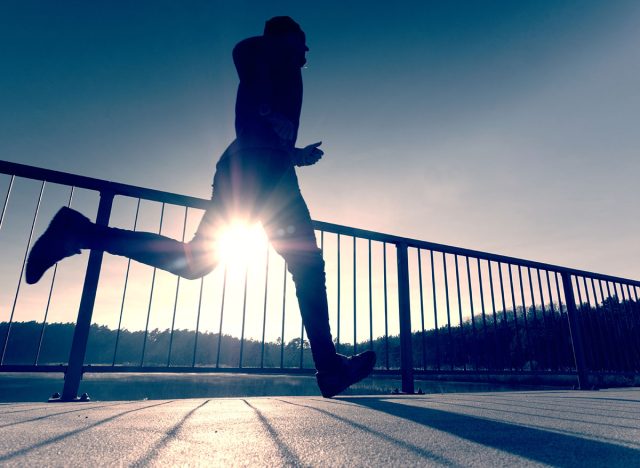
"As a coach and trainer, I don't really like to link weight loss with running," Horowitz advises. He explains why: "Clients can make bad choices in training based on their weight loss goals. For example, your muscles may tell you that you need a day off, but you may believe that you need to run in order to reach your calorie burn goal." He adds an important insight about marathon training: "Some people think that they will lose weight when they train for a marathon, but that usually isn't the case because you need to take in so many calories to fuel all that additional running."
Nutrition After 40

"Weight loss after age 40 involves realizing that your metabolism is slower than it used to be. You simply can't take in as many calories to achieve your goals as you used to," Horowitz explains. He recommends focusing on "fresh, mostly unprocessed foods, any carbohydrates in moderation" and consulting a certified nutritionist for personalized guidance.
Quality Over Quantity
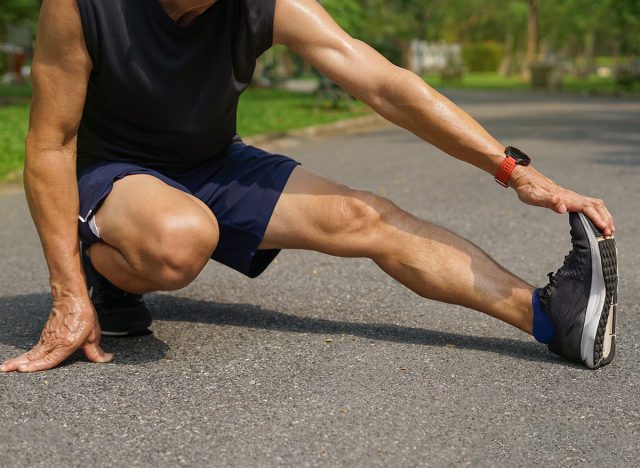
"I find that older athletes can still produce real quality efforts in training and racing, but the preparation needs to be more focused," says Horowitz. He emphasizes the importance of "stretching, flexibility, and off days or easy efforts after hard workouts."
A Smart Start for Beginners
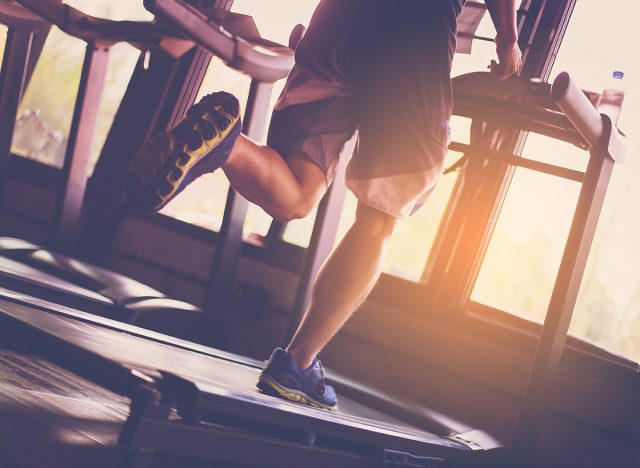
For beginners over 40, Horowitz recommends "starting with a mix of running and walking for short periods of time, and slowly build on the length of time and the length of the run segments until they feel comfortable with steady running." He suggests beginning with "half-hour training three to four times a week and then adding five minutes for one of those workouts every week."
RELATED: She Lost 90 Pounds in 3 Years Using 10 Daily Habits Anyone Can Follow
Finding Motivation

"I keep looking for new challenges to spark my imagination," Horowitz shares. "That might involve running new races or routes." He emphasizes the social aspect: "Most runners I know are really social animals. We love to run groups and hang out together. Social connections really help keep me motivated."
Essential Home Equipment
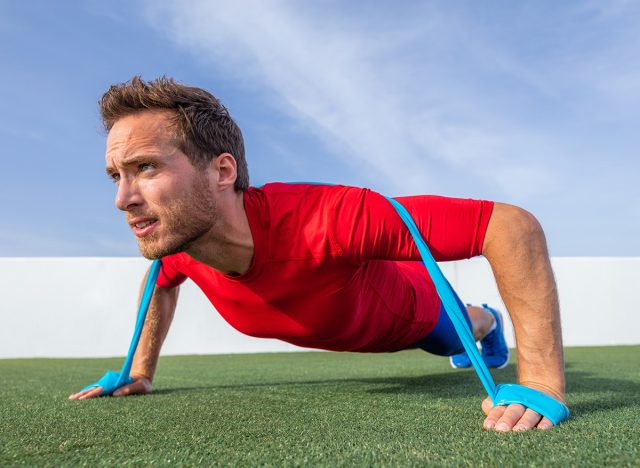
"There are several inexpensive pieces of equipment that you can keep at home to both work on training and recovery," says Horowitz. "I would invest in a BOSU and resistance bands for training, as well as a foam roller and a massage gun for recovery. Working with these items has really helped me stay fit and injury-free."
Embrace New Training Methods
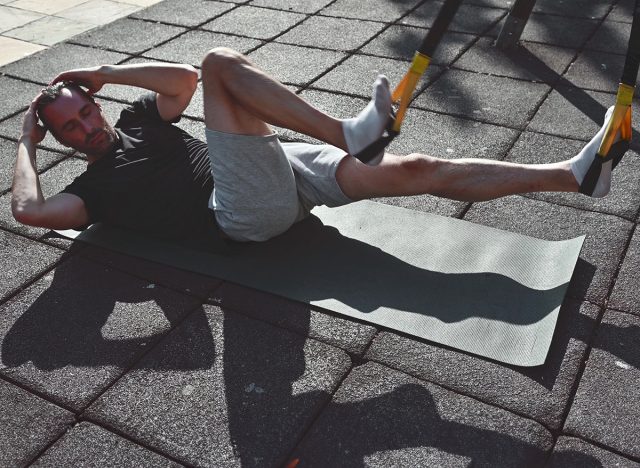
"I've taken up yoga over the past few years, for example, and though I used to turn my nose up at that discipline, I've really started to enjoy it, and have certainly noticed improvements in flexibility and injury prevention," Horowitz shares.
RELATED: Weight Loss Coach Lost 30 Pounds After Starting to Eat More Potatoes
The Value of Professional Guidance

"For best results, I really recommend that new runners, especially older ones, connect with a certified running coach to give them more personal guidance," Horowitz advises. "Coaching is not just for elite runners. Everyone can benefit from having a professional coach help guide them." And if you enjoyed this article, don't miss 12-3-30 Walking Method: 20 Proven Tips to Lose Weight Faster.




